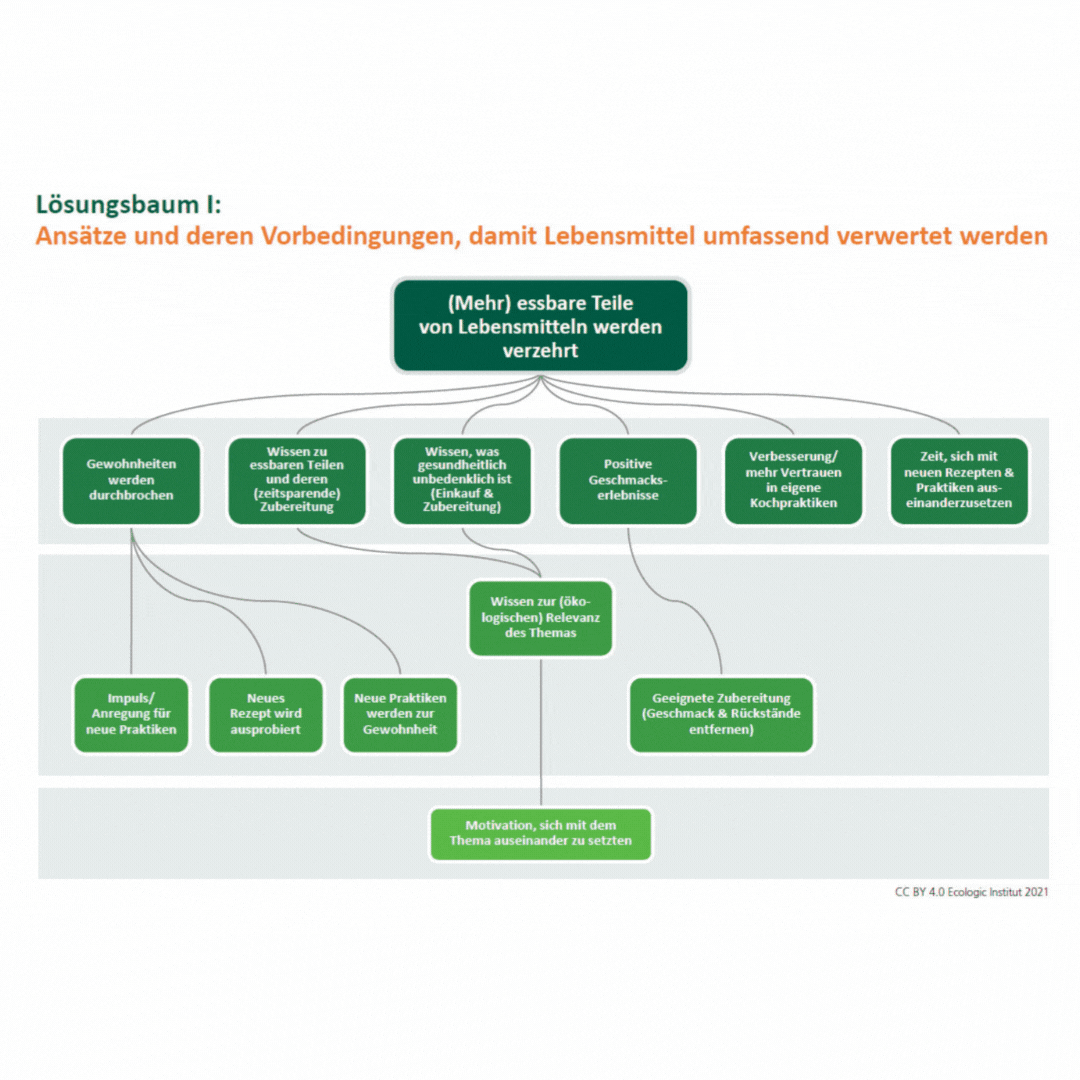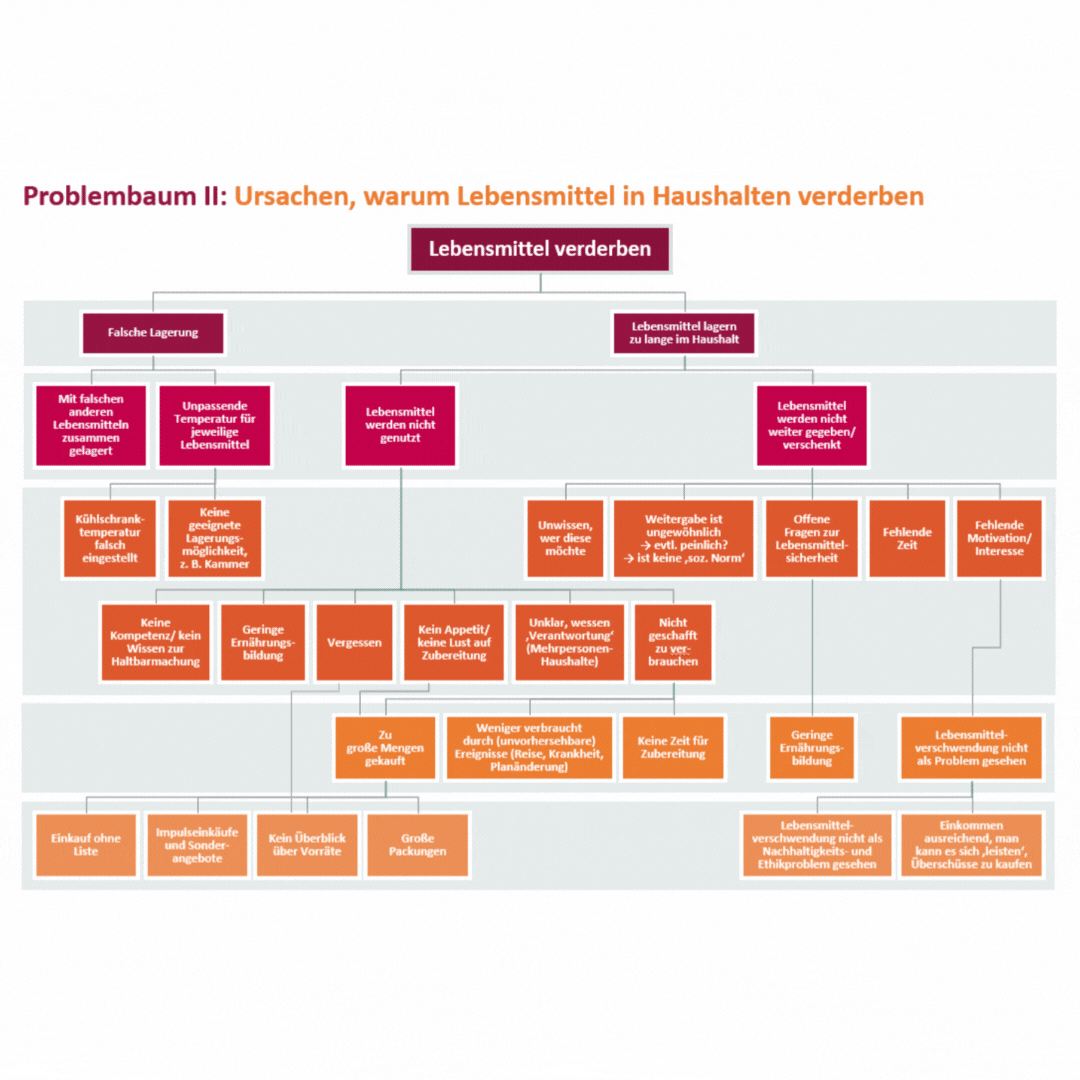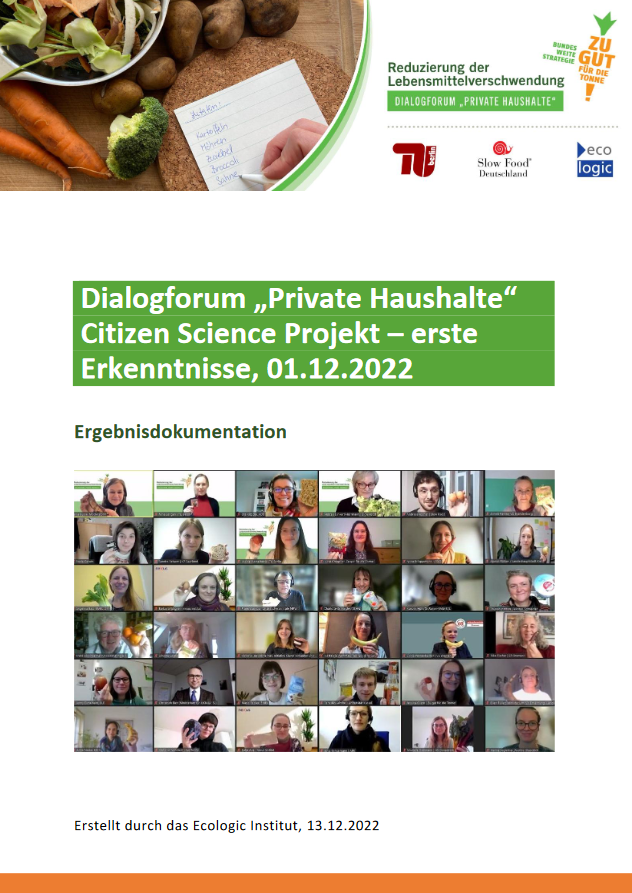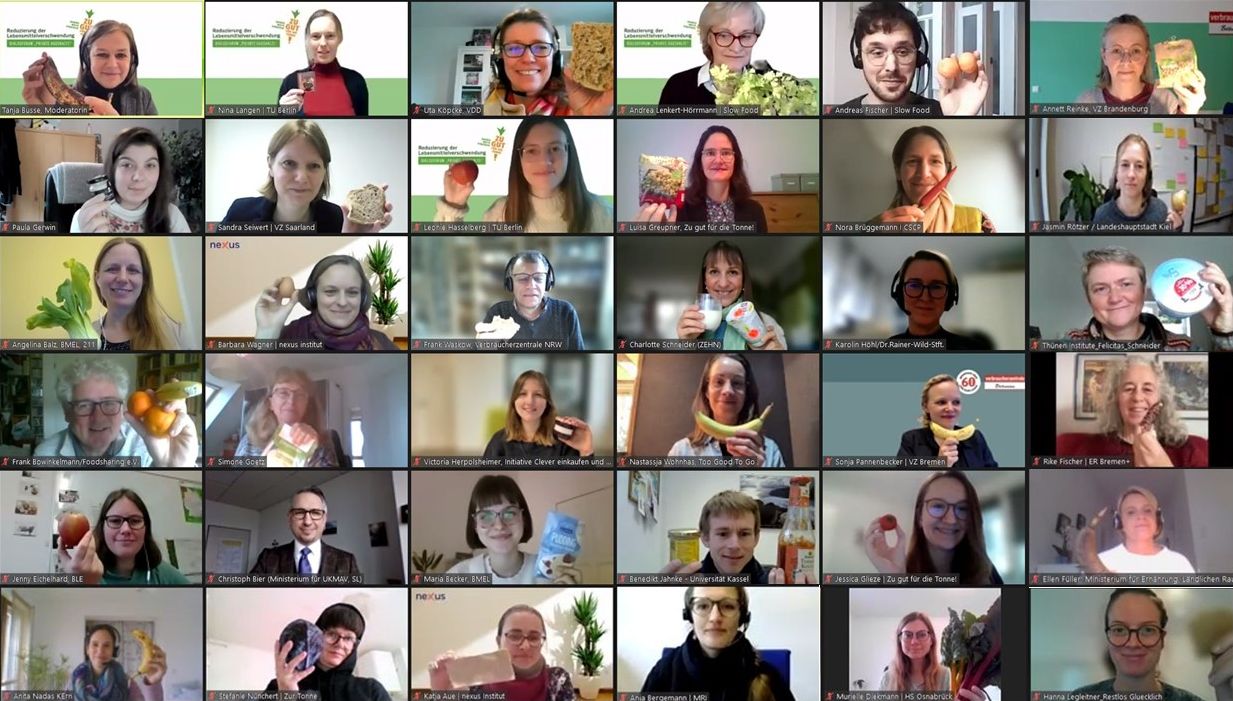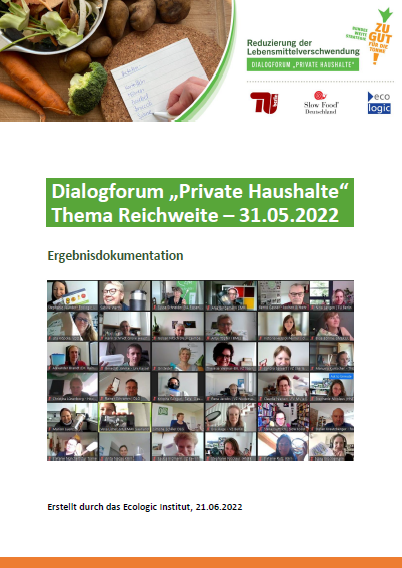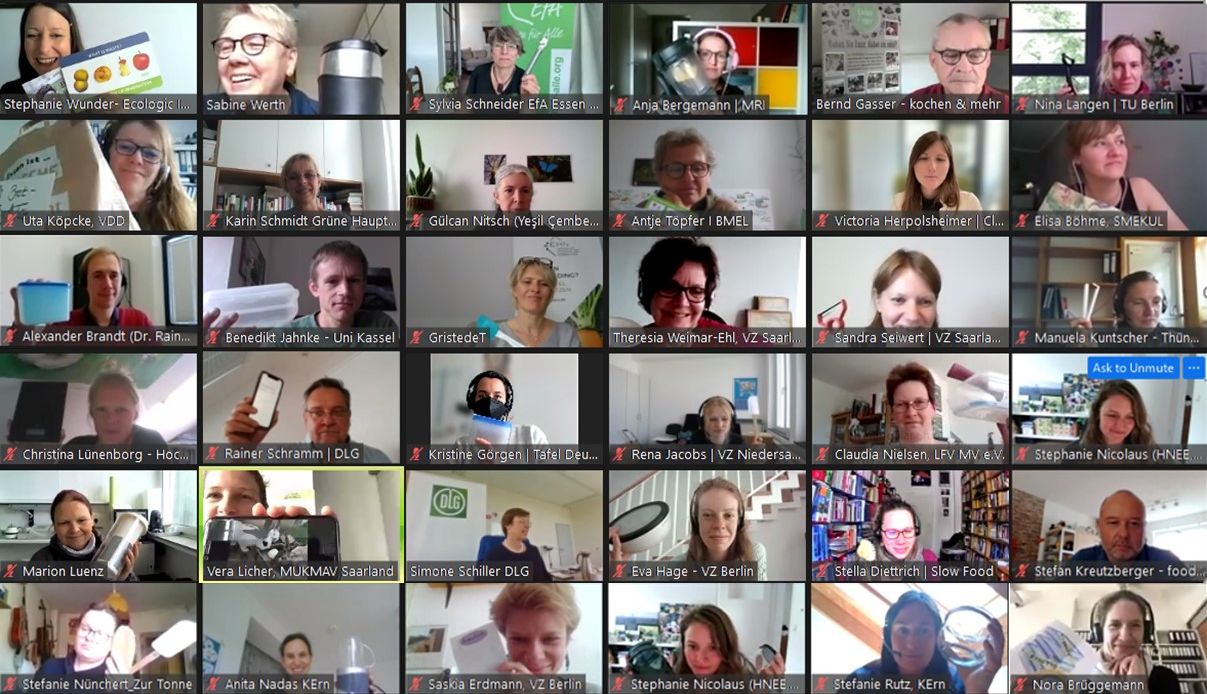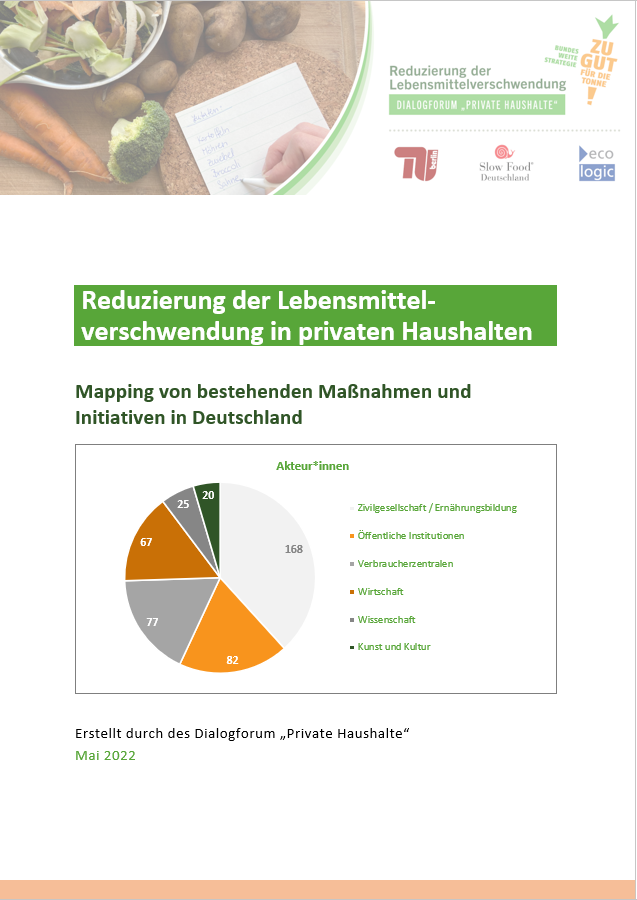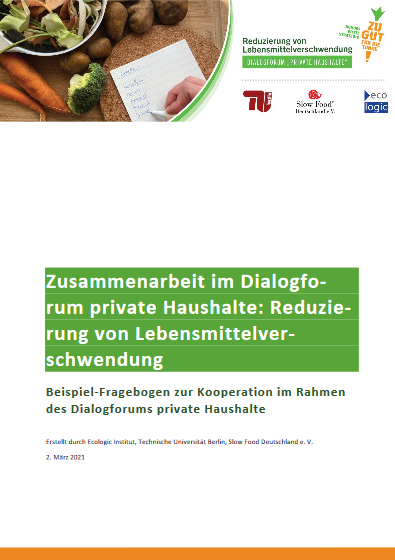© Federal Ministry of Food and Agriculture
Reduction of Food Waste in Private Households in Germany
- Project
- Duration
-
-
Citizen Science Project "Deutschland rettet Lebensmittel"
Most food waste is generated in private households. The project team of the Dialogue Forum "Private Households" is therefore conducting a Citizen Science project together with Zu gut für die Tonne! investigating the questions: How do we avoid food waste in our own kitchens? What quantities can be reduced? What measures are effective? As part of the action week "Deutschland rettet Lebensmittel", participants were able to take part in various actions to reduce food waste. In a before-and-after survey, their own kitchen waste was measured. This data, collected from May to October 2022, will be analysed by the research team to evaluate the effectiveness of the actions. For more information on the Citizen Science Project, please visit the zgfdT website.
In order to implement the global Sustainable Development Goals (SDGs), in particular SDG 12.3, the German government aims to halve food waste at retail and consumer levels, as well as to reduce food loss during production and supply. According to Thünen Institute calculations, 52 % of the total amount of food waste is generated by private households. This corresponds to about 75 kg per person per year.
In order to reduce this high proportion, numerous activities have been launched at the federal level since 2012 with Zu gut für die Tonne! (Too good for the bin!) to increase awareness for food waste reduction at consumer level. In addition, the "National Strategy for Food Waste reduction" was adopted by the German government in February 2019, setting out the process for defining measures to prevent food waste. One field of action within the strategy is the establishment of five dialogue forums for all steps of the food supply chain (primary production, processing, wholesale and retail, out-of-home catering, private households) as well as an overarching "National Dialogue Forum".
Aim of the project
The project "Dialogue Forum Private Households" as part of the National Food Waste Reduction Strategy aims to reduce food waste in private households.
A core area of the project is the identification of promising approaches and interventions. These will be implemented in cooperation with practitioners and evaluated for their effectiveness using a standardized method developed within the project. European and international experience in reducing food waste in private households will also be taken into account. The evaluation of interventions plays an important role, as there are currently hardly any studies on the effectiveness of campaigns and measures to reduce food waste throughout Europe. The evaluation approaches tested in the project will be developed in such a way that they can be used by practitioners even after the project and provide a comparable framework with which initiatives can review and further develop their work.
Appropriate measures to reduce food waste in private households will also contribute to the establishment of sustainable nutrition practices and increase nutrition knowledge. Therefore, in addition to the reduction of food waste, other sustainability effects will also be captured by the evaluation method.
A second core area of the dialogue forum is the support and networking of stakeholders relevant for the reduction of food waste in private households. Within the framework of dialogue forums, with regular network meetings and workshops, the identified good approaches for effective interventions are discussed and further developed in order to make the findings as useful as possible for the design of campaigns and interventions. New collaborations are fostered through trans- and interdisciplinary cooperation between different actors. The dialogue forum thus contributes to identifying consistent approaches and messages for sustainable and low-waste food practices.
To participate in the work of the dialogue forum, please complete our short online questionnaire.
In addition, political needs for action to reduce food waste are discussed within the dialogue forum and summarized in policy briefs.
Work plan and cooperation with stakeholders
In Germany, there are already numerous actors who are committed to combating food waste. Close cooperation with these initiatives, companies and institutions is at the core of the project.
In a first step (mapping), relevant actors and institutions from nutrition education, civil society, business, science, consumer protection, existing networks and initiatives against food waste, the participants and prize winners of the national competition Zu gut für die Tonne!, public institutions and other stakeholders will be identified at the beginning of the project.
In a second step, the actors will be contacted and an assessment of approaches for interventions that have already been applied or that are in the phase of planning and development is undertaken. Initiatives or actors who want to test new or further developed approaches to reduce food waste in private households are offered support by the project team in the development and evaluation of the measures.
The aim of the project is to test and evaluate a selection of different interventions. Attention will be paid to a diversity of approaches in terms of target groups, content-related starting points (e.g. with regard to relevant household practices: planning, purchasing, storage, preparation, consumption, disposal) and last but not least to the type of interventions (information campaigns, training of specific skills, use of reward systems, (self-)commitment, campaigns to influence social norms, etc.). The starting point of the selection is the assumption, – confirmed among others in the EU research project REFRESH - that existing interventions often aim at awareness raising and providing information on the consequences of food waste. According to the current state of research, however, measures to improve practical skills (food storage, preparation, use of leftovers, etc.) or measures to influence social norms have a higher potential to reduce food waste, but are still used much less frequently. Testing the impact of these kinds of interventions is therefore among the subtargets of the project.
Project partners and duration of the project
The three-year project was officially launched in October 2020. The project is led by Slow Food Germany and Ecologic Institute and implemented together with the Department Education for Sustainable Nutrition and Food Science at TU Berlin. Project sponsorship is through the Federal Office of Agriculture and Food (BLE).




